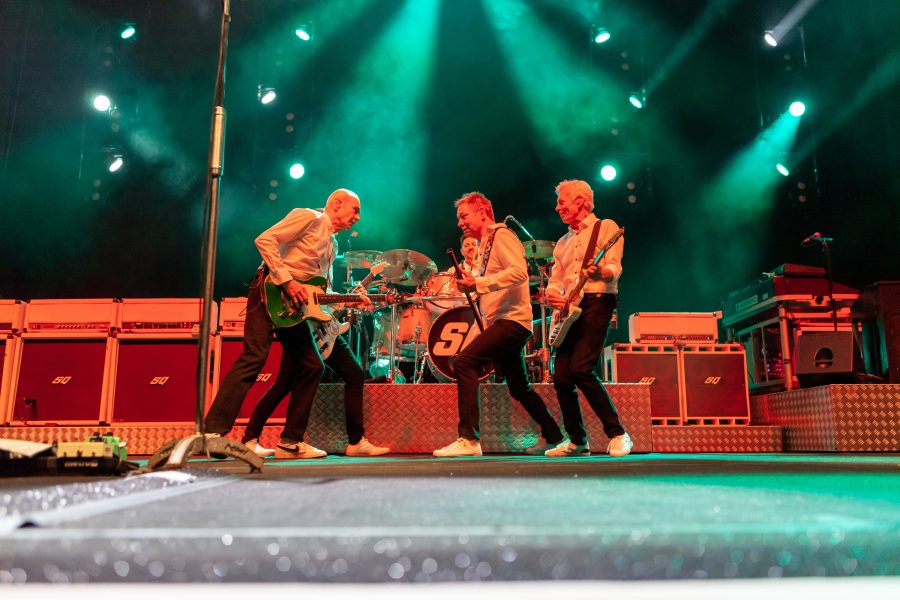Status Quo spent much of 2022 playing a series of UK theatre shows, followed by festivals, arenas and theatres across Europe, before rounding off the year in UK and German arenas. Along with the band every step of the way were Yamaha PM5D-RH and M7CL mixing consoles which, like the band, show absolutely no sign of slowing down.
Having played what the band estimates to be more than 6000 live shows over just shy of 50 years, Status Quo wouldn’t continue to pull in big audiences each year without every gig maintaining a high standard. Key to this is the confidence that every part of the touring production will be consistent and reliable.
“The band wants three things,” said FOH Engineer, Andy May, as the UK arena dates kicked off in late November at Aberdeen’s new P&J Arena. “Reliability, great sound and, just as important, consistency. They need to know that the sound out front and in their monitors will be the same every night.”
May became Quo’s FOH Engineer 20 years ago. Since 2004, his Yamaha PM5D-RH has been at the heart of every live show. The even longer-serving Tim Franklin has been mixing monitors on a Yamaha M7CL since the mid-2000s. With years of hard touring behind them, the reliability of the consoles speaks for itself.
“At the time, it was a risk,” smiled May, describing his purchase of the PM5D, 18 years ago. “It was a huge investment, but it has paid for itself many times over. Of course it’s always tempting to look at the latest technology, but the PM5D-RH is perfect for this band. It does exactly what I need. I don’t have to carry separate boxes like outboard racks, additional I/O or a ‘brain’, I don’t need extra plug-ins or licences for software effects. We get into a venue, I open up the console, plug it in, load the show file and can get straight on with the job. Everything I need is there in front of me.”
When it comes to festivals, Quo’s status means that May and Franklin can use their regular consoles. This summer, the PM5D faced one of its sternest tests at a festival in the Netherlands.
“We were getting on with the show when a beer landed smack in the middle of the desk,” said May, wincing at the memory. “It wasn’t the first time it’s happened, but I really thought this time it was going to fall over. As we did the next song, the lights on the surface started to go out. We did the next one and more lights went out, but it kept going. And it got us to the end of the show without losing anything significant.
“I cleaned it up as best I could and we did the next show with no problems, apart from it feeling a bit sticky. We then had the chance to clean it properly and it’s been fine ever since. You need a front of house console to be reliable and I honestly don’t think there’s another brand which would go through that and not have major issues. It’s that kind of reliability which makes you think, if it ain’t broke, don’t fix it.”
While the M7CL has perhaps not endured quite such dramatic tests, being on tour for significant parts of the year still needs a console to be extremely dependable. And with the band happy with its sound, there has been no reason to change.
“They are all on in-ears, so it’s a very intimate sound experience and they notice any change,” said Franklin. “I did one show with a Yamaha CL5 and Francis immediately noticed the difference. He liked the sound, but the next show we went back to the M7CL and he never mentioned it again.”


